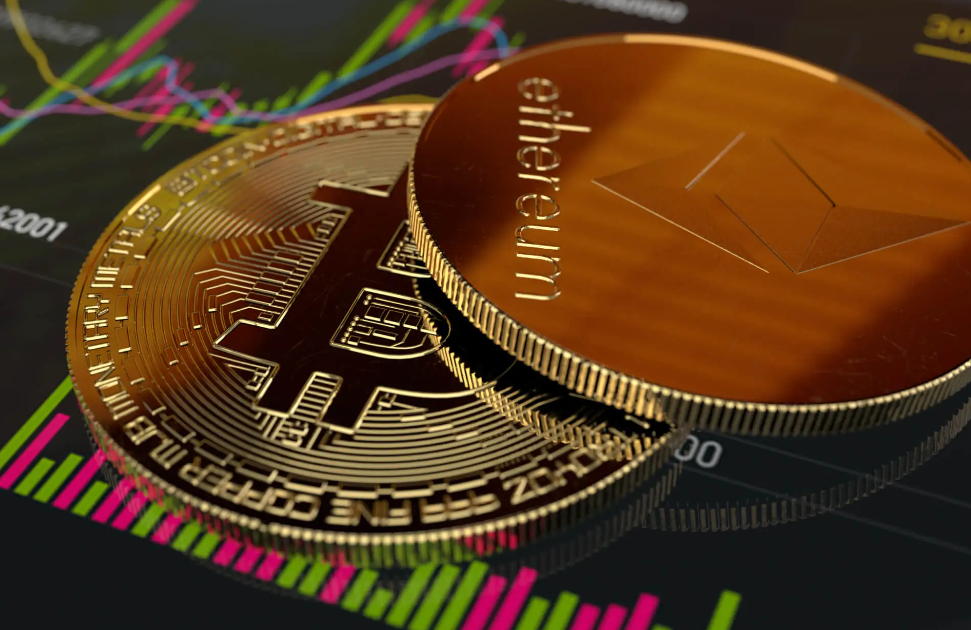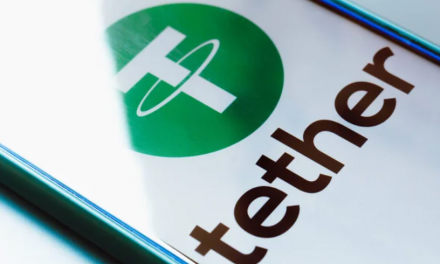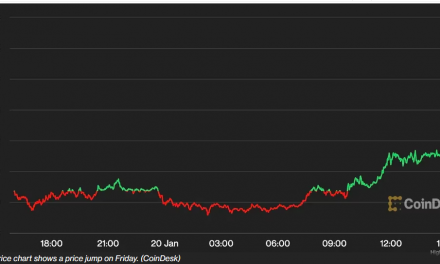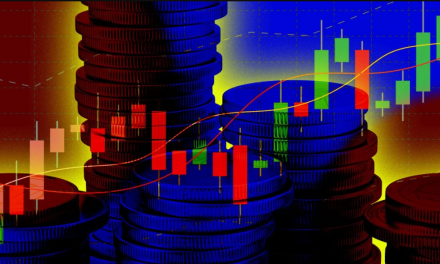We hear the term “trustless” thrown around a lot in crypto, and many are confused by its implications. It is a vague term with several potential meanings, depending on the context. “Directionless” means “without direction,” so “trustless” must mean “without trust,” right? Surely an absence of trust is bad?
It turns out that “trustless” is yet another term that the crypto ecosystem has appropriated and imbued with an altered definition, to refer to the lack of the need for trust. In traditional finance we trust our banks to make our payments and safeguard our deposits and we trust our brokers to execute our buy/sell requests.
Noelle Acheson is the former head of research at CoinDesk and Genesis Trading. This article is excerpted from her Crypto Is Macro Now newsletter, which focuses on the overlap between the shifting crypto and macro landscapes. These opinions are hers, and nothing she writes should be taken as investment advice.
In crypto, in theory, we don’t need to trust any third parties. We can directly transact peer to peer, leaving the code to handle the balance adjustments and verify on-chain that all is in order.
This is not an absence of trust – it is an environment in which trust is not needed.
In theory, anyway. Peeling away layers, we still have to trust the blockchain as well as the interface we use; we even have to trust the miners and/or validators maintaining the network. And in buying our crypto assets from a centralized exchange or storing it with a centralized custodian, we are trusting middlemen to handle our funds fairly (unfortunately not always the case, as we have seen). If we use a decentralized app, we trust the code has no bugs (also not always the case).
How do we evaluate ‘trust’?
Like the air we breathe, our lives are fueled by trust, even in “trustless” systems. Our society doesn’t work without it and nor will it, no matter how decentralized we get. Trust is why contracts work, empires fall and people seek community.
It is also why the annual “Edelman Trust Barometer,” published every January, makes such compelling reading. Since 2000 it has been documenting the decline of trust in our society by canvassing 32,000 people across 28 countries, to gauge attitudes toward the institutions that shape the framework of our lives.
This year, the main theme is growing polarization, with respondents in the U.S., Argentina, Spain and others overwhelmingly checking the “extremely divided and no solution in sight” box. One of the principal drivers of this shift is the declining trust in government (seen as “unethical and incompetent”) and media (seen as “biased and misleading”).
“Business” comes across as the only trusted pillar of our society. This year’s report highlights the growing expectations the public has of CEOs. A resounding 89% of respondents expect them to take more of a stand on the treatment of employees, 82% on climate change, 80% on discrimination.
Rather than offer relief that at least one key group of institutions is still trusted, this raises many concerns. What is the purpose of business – to make profits for investors or to advocate for certain values? How political should business become, and to what extent could this hurt its growth potential?
This shift in expectations resurfaces something I touched on earlier. We can’t suppress the need for trust in our lives, and when it is damaged in one area we look for compensation in another. But expecting businesses to step into the role of societal governance and dissemination of “truth” could end up distorting markets.
A different trust model for crypto investing
Which brings us to crypto: An easy assumption is that crypto runs on cold code rather than warm people and therefore delivers a “purer” market experience. This may be the case (no corporate decisions impacting earnings potential, leaving investors to focus on design choices), but code – especially in crypto – does embody values.
Satoshi didn’t create Bitcoin to fill a void in the world’s trust map. He (or she or they; I’ll use “he” for convenience) created Bitcoin to fill a void in his trust map, expecting that other like-minded individuals would find it interesting. Bitcoin has no leaders to shape it into what its market wants, nor a marketing department to help identify what that is. Bitcoin didn’t go looking for users – its ecosystem spontaneously emerged among people who value what its code can do, and has grown as more and more people question established market and money orthodoxies.
An often-misunderstood premise of Bitcoin and similar crypto networks is that they’re code written to perform a function that makes them a tool, and tools have many uses, good and bad. Bitcoin, for example, may have been created with certain values in mind but that doesn’t stop it from being used by those that don’t share those values.
This matters for investor expectations. Investing in crypto is akin to investing in tools, which makes crypto much more like a commodity market driven by supply and demand than a securities market driven by corporate strategy and soft goals. Yet, unlike commodities, crypto assets also embody certain characteristics that put them in the path of the “values investing” crowd, which the Edelman study showed is even larger than most of us realized. No one has ever accused copper of having values.
It also matters in terms of regulatory assessment, surfacing a heated debate with which many in crypto are all too familiar: Should you regulate a tool or only its uses? Knives can make food easier to eat and they can kill, yet no politician is advocating for the regulation of knife sales. However, Bitcoin (to choose an obvious example) was born with embedded anti-regulation sentiment. That warrants some concern on the part of those who see their influence waning.
All this highlights just how new crypto concepts still are and how we have barely scratched the surface in terms of their impact on the way we see concepts such as markets, regulation and trust. It’s about so much more than understanding algorithms, data structures, securities law or economic incentives.
But it is worth questioning our trust in a report about trust, especially when a PR firm that caters to corporations tells us that corporations are more trusted than other areas of our societal framework. Whether the report’s conclusion is biased or not, probing neatly packaged narratives is a healthy exercise.
Perhaps this is the ultimate utility of the crypto ecosystem. While it continues to test use cases and expand into new market segments, it has given us more than a means to route around selective barriers and a window into a new economic hierarchy. It has also given us a lens through which to question established conventions.
As the Edelman report suggests, “values” and “trust” are important – it just may turn out, however, that we don’t understand them as well as we thought, and that the new tools in the philosophical box will nudge us to think about what they mean for us as individuals and communities. This could, in turn, lead to a deeper awareness of just how these fundamental concepts can shape the next generation of markets and transactions, and what that means for our connections with each other.
Source: CoinDesk





